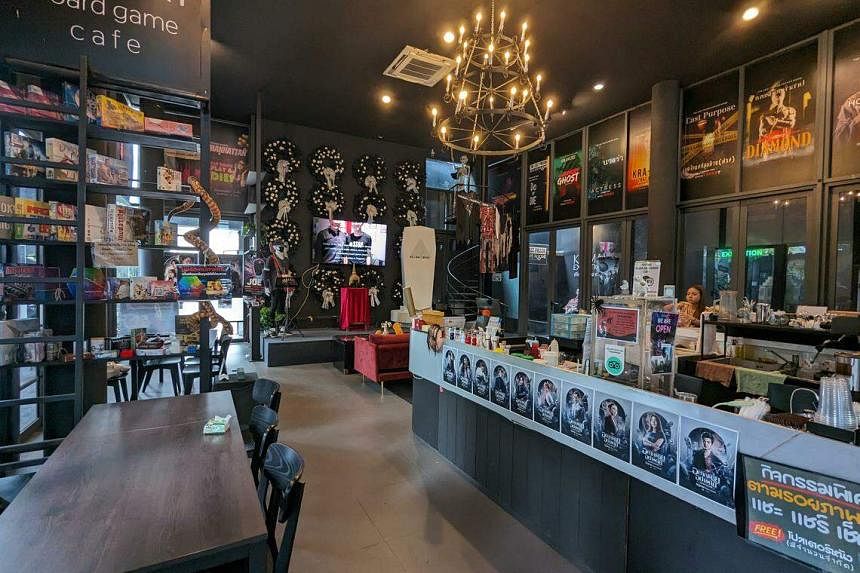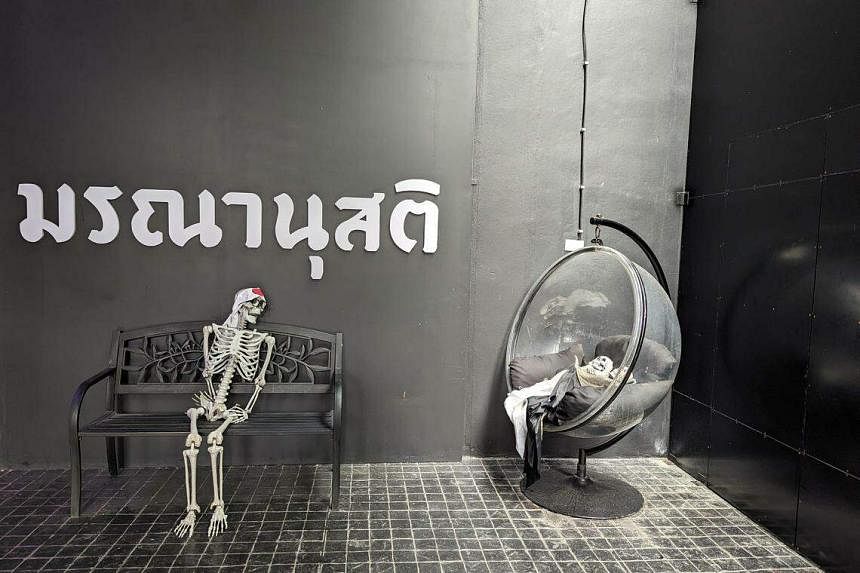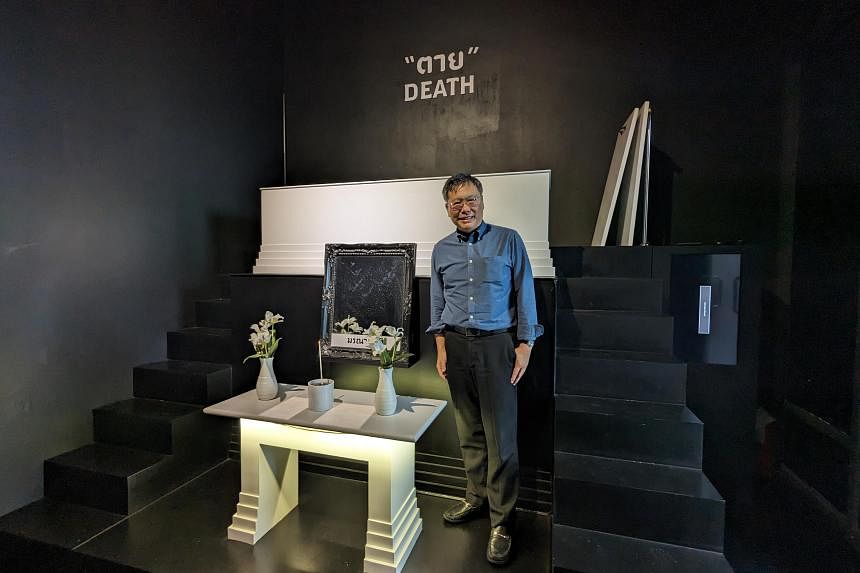BANGKOK – In Thailand, death is still a taboo subject, but the topic of palliative care has recently come under the spotlight after a widely shared farewell post by a young doctor with terminal lung cancer.
On Nov 2, Dr Krittai Tanasombatkul, 29, announced that he “should be going” in mid-December.
“I won’t be able to stay long. If anyone has something they want to say, please tell me,” wrote Dr Krittai on his Facebook page. He had earlier in 2023 released a memoir about his battle with cancer.
His Facebook post and other similar posts on social media platforms have since garnered more than 300,000 views and been shared about 60,000 times. Besides showing support for Dr Krittai, many netizens also revealed their thoughts about the fragility of life and having a dignified death.
Mr Ekkapop Sittiwantana, a co-founder of Peaceful Death, a non-governmental organisation which aims to raise public awareness about end-of-life preparations and palliative care, calls this a positive moment for the conversation about death.
“If you do not talk about death, you cannot plan, and that creates a lot of complications for the patient, family and doctors,” he said.
As Thailand becomes one of the fastest-ageing populations in the world, with nearly one-fifth of its 70 million citizens above 60, the demand for geriatric medicine as well as elder and palliative care has grown.
Compared with five years ago, the field of palliative care has grown as more medical workers and hospitals focus on this area of medicine, said palliative care physician Itthipon Wongprom.
However, the level and quality of care can differ greatly, and not all hospitals have the bandwidth for eldercare home visits or for doctors to specialise in palliative treatment. Thailand, which has about 50,000 doctors, still faces a shortage of medical personnel, especially at public hospitals.
In 2014, the Thai government introduced the Palliative Care Policy, paving the way for palliative care units to be established in provincial and community hospitals.
In 2021, advance care planning, in which people make plans for their future healthcare, including their treatment preferences in a medical emergency, was rolled out on a national level. This included a common national form for advance care planning and standard operating procedures implemented across the board.
Still, end-of-life care remains a difficult subject to broach.
A 2018 survey by the Thailand Development Research Institute, a think-tank, found that only 37 per cent of 2,394 respondents had ever had a discussion about the end of life. The survey found that culture and tradition, the perceived difficulty of raising the topic and the negative emotions it might trigger were the main barriers to such dialogue.
Broaching the touchy topics is not just about confronting the complicated emotions surrounding death and life, or religious and spiritual beliefs. Such discussions ensure that patients receive their desired treatment, and that suffering is not prolonged against their wishes.
Almost two decades ago, Mr Ekkapop witnessed doctors resuscitating his grandmother, only to watch her suffer more as her condition deteriorated even further. She died shortly after.
In 2016, Peaceful Death launched the Comfort Heart Book as part of its campaign to educate people on end-of-life planning, with prompts for them to plan their desired treatment, care and even funerals.
The activity book is available free online or for 30 baht (S$1.15) in hard copy. People are encouraged to write down their wishes in the notebook and to let family or caregivers read the notebook to ensure the plans are fulfilled. So far, the notebook has been distributed to at least 100,000 people, said Mr Ekkapop.
Dr Itthipon says many people still frown upon talk about death, illness and end-of-life services like palliative care. It is also not uncommon for families to hide a terminal diagnosis from a patient to protect the latter from the bad news.
“The patient and family cannot plan for their desired care and quality of life if they don’t confront the situation,” said Dr Itthipon, who is also a clinical instructor at the Department of Family Medicine at Ramathibodi Hospital, the teaching hospital of Mahidol University.
“Of course people still hope that they or their loved one can be cured, so they would rather not talk about the possibility of death right now. But it could be too late if they wait.”
While death is a difficult topic to broach, there is a cafe in Bangkok that pushes the envelope.

At the Kid Mai Death Awareness Cafe, visitors come face to face with a white casket as funeral chants play on a loop in the background.
They are encouraged to climb in, but only some do.
The brave souls who do are initially all smiles as they pose for the camera. But as the lid slides shut, the inevitability of death hits, said Dr Veeranut Rojanaprapa, who opened the cafe in 2018. The cafe also has an accompanying exhibition to encourage dialogue on sickness, pain and dying.
“During those few minutes in the dark, they realise that one day they will lie alone like this, and emotions kick in,” said Dr Veeranut, who is a social scientist.
The cafe, which offers signature drinks named after life stages such as birth, pain and death, was the talk of the town when it opened.
“Most people were criticising me, saying that I was practising black magic, and that I was not abiding by Buddha’s teachings,” said Dr Veeranut, noting that Buddhist teaching does encourage one to be realistic about death and not to shy away from it.

Today, the cafe has expanded to include a prison-themed escape room. But it is still an oddity, with each corner elaborately decorated with skeletons, funeral wreaths and all sorts of reminders of one’s mortality.
“It’s a weird place, but the point is to get people talking about death. And once they are willing to discuss death, they will usually find that life gets better,” said Dr Veeranut.


